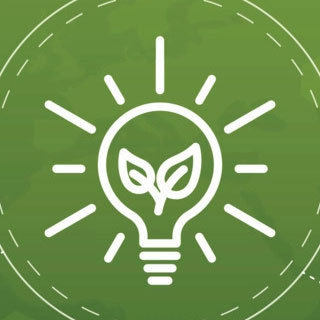
International Workshop on Sharing Economy
16 September - 17 September 2024
The Faces of Innovation in the Sharing Economy
From Monday 16 September to Tuesday 17 September 2024 the University of Bradford School of Management will be hosting the 9th iteration of the International Workshop on the Sharing Economy (IWSE).
The IWSE series is one of the most longstanding international fora on the sharing economy. Its 9th Edition in the University of Bradford School of Management (and at the heart of the UK’s City of Culture 2025) follows the success of IWSEs hosted by the Utrecht University (2015, 2019), ESCP Business School Paris (2016), University of Southampton (2016), Lund University (2017), University of Mannheim (2018), Open University of Catalonia (2021), and University of Natural Resources and Life Sciences (Vienna) jointly with Lund University (2023).
The Workshop provides a unique dedicated platform for academics, practitioners, industry experts and local authorities to advance the understanding of the sharing economy phenomenon, and explore and develop cross-disciplinary collaborations, in terms of both research and its application.
Sharing Economy
The sharing economy has emerged as a global phenomenon challenging the conventional models of production and consumption. It has become a source of innovation across different sectors of the economy and society. It has been linked to technological innovation, service innovation, disruptive business model innovation, sustainable and community-centred innovation as well as public-sector innovation.
It has enabled individuals to engage in new peer-to-peer ways of participating in economic activity, and for organisations to explore innovative approaches for creating and capturing value from underutilised resources. One may argue that the sharing economy has also exposed some ‘darker sides’ of innovation, related to community (in)cohesion, discriminatory behaviours, workers’ rights and employment, disproportionate powers exercised by sharing platforms, etc.
As the sharing economy continues to evolve and innovate, embracing the opportunities of digital and sustainability transitions, it is essential to further explore the diverse and sometimes conflicting facets of sharing model innovation and their implications for individuals, households, organisations, communities and societies.

IWSE Topics
We invite submissions from a range of disciplines including Business and Management, Economics, Law, Geography, Sociology, Sustainability, Public Policy and Political Science, Urban and Planning Studies, Computer Science, Transportation Studies, and others.
The topics covered by the 9th IWSE include but not limited to:
- Technology enabled and technology-centred innovation in the sharing economy (e.g., blockchain, IoT, AI).
- Social and cultural aspects of innovation in the sharing economy
- Diversity and inclusivity dimensions of sharing economy innovation
- Sustainability aspects and implications of sharing economy innovation
- Not-for-profit sharing models
- Community-centred elements of the sharing economy innovation
- Human-centred innovation and platform design
- Off-line sharing models
- Governance and regulatory approaches in the sharing economy
- Novel business models in the sharing economy
- Innovative strategies in the sharing economy (e.g., co-optation)
- Urban and smart city sharing models
- Rural sharing models
- B2B innovation
- User-centred and peer-to-peer innovation
- Behaviour and trust in innovative sharing platforms.
- ‘Dark side’ of innovation in the sharing economy
- Diffusion of innovation in the context of the sharing economy
- Spatial aspects of the sharing economy innovation
- The role of context in the sharing economy
- Sharing Economy models in the Global South and emerging economies
- Sharing economy ecosystems
- Cross-learning in the sharing economy (e.g. how to learn across different initiatives, contexts, scholarly approaches and business practices)
- New approaches in impact assessment of the sharing economy
- New theoretical perspectives on the sharing economy
Submission Guidelines
Please submit a 450-word abstract to the following link: 9th IWSE Call for Paper Submission
The proposed academic papers can be both theoretical and empirical, featuring quantitative and qualitative technologies or both. We also welcome submissions from practitioners, e.g. case studies, practices to share, overviews of trends, opportunities and challenges.
Key Dates:
- Abstract Submission Deadline: 07th May 2024 (followed by a double-blind peer review).
- Notification of Acceptance: 31st May 2024
- Conference Dates: 16-17 September 2024
Registration for the Conference will open in coming weeks.
Register and contact us
Please submit a 450-word abstract to the following link to register your interest in presenting at the 9th IWSE.
If you have any further queries then please reach out to us at iwse@bradford.ac.uk
Registration
For this years IWSE we will be charging fees as follows:
- Early Bird Regular - £170
- Early Bird Reduced (PhD Researchers or students only) - £90
- Regular Fee - £210
- Regular Fee Reduced (PhD Researchers or students only) - £110
The early bird period will end on 30th June, 2024.
Registration will open soon.
Local Organizing Committee
Each of the following are contributors to the Scientific Committee for IWSE:
- Mark Boons (Vrije Universiteit Amsterdam)
- Igor Calzada (Cardiff University)
- Maria Casado-Diaz (University of West England)
- Agustín Cocola-Gant (University of Lisbon)
- Rense Corten (Utrecht University)
- Ricard Espelt Rodrigo (Open University of Catalonia UOC)
- Koen Frenken (Utrecht University)
- Christian Garaus (BOKU University Vienna)
- Marion Garaus (Modul University Vienna)
- Vadim Grinevich (University of Bradford School of Management)
- Hugo Guyader (Linköping University)
- Szilvia Gyimóthy (Copenhagen Business School)
- Barbara Hartl (WU Vienna University of Economics and Business)
- Johanna Hofbauer (WU Vienna University of Economics and Business)
- Eva Hofmann (University of Graz)
- Franz Huber (Seeburg Castle University)
- Dimitri Ioannides (Mid Sweden University)
- Dominik Klaus (University of Vienna)
- Eva Kipnis (University of Bradford School of Management)
- Miriam Kullmann (Radboud University Nijmegen)
- Marta Machuca (Universitat Internacional de Catalunya UIC)
- Kamran Mahroof (University of Bradford School of Management)
- Frederic Marimon (International University of Catalonia UIC)
- Sarah Marth (University of Applied Sciences Wiener Neustadt)
- Jeroen Meijerink (University of Twente)
- Mirijam Mock (WU Vienna University of Economics and Business)
- Oksana Mont (Lund University)
- Andrius Plepys (Lund University)
- Achim Oberg (University of Hamburg)
- Christina Öberg, Linnaeus University
- Selin Öner-Kula (WU Vienna University of Economics and Business)
- Vera Vidal Rougier (Open University of Catalonia UOC)
- Paul Sissons (Keel University)
- Angelika Schmidt (WU Vienna University of Economics and Business)
- David Spicer (University of Bradford School of Management)
- Kuttimani Tamilmani (University of Bradford School of Management)
- Maja Turnšek (University of Maribor)
- Yuliya Voytenko Palgan
- Hege Westskog (University of Oslo)
- Julie Wilson (Open University of Catalonia UOC)




